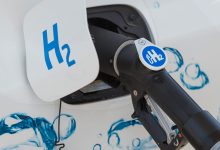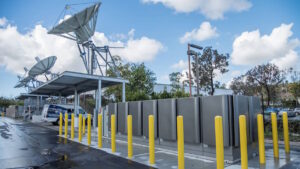An Australian hydrogen technology start up will partner with the Queensland University of Technology to improve the performance and efficiency of hydrogen fuel cells.
Titan Hydrogen’s CTO Andrew Dicks said that fuel cell technologies already being developed by the company would help improve the efficiency of hydrogen fuel cells and reduce the overall cost of their operation, and the involvement of the QUT would help the company bring these technologies to market.
“Titan holds the patent application to a revolutionary technology that improves the efficiency and reduces consumption of hydrogen of existing fuel cells, making their use much more viable,” Dicks said.
“Not only will we be able to manufacture a more efficient fuel cell for trucks and other large engines, we will be able to licence our technology for use by car manufacturers.”
The company said that the research collaboration with the Queensland University of Technology would help to identify crucial improvements to fuel cell technologies, adding that it would have flow on benefits to reducing the cost of the use of hydrogen, while much research is focused on reducing the cost of production.
“The development will investigate the fundamental processes occurring within fuel cells using both electrochemistry and analytical techniques to validate fully the Titan fuel cell concept in which a novel nano-structured membrane is at the heart of the fuel cell,” Dicks added.
“The aim of the work is to create a new type of hydrogen fuel cell that is not limited by losses caused by the high overpotentials experienced in currently available devices.”
According to an investor presentation provided by Titan Hydrogen, the company anticipates that it could improve the efficiency of hydrogen fuel cells by as much as 60 per cent, by focusing on potential enhancements to hydrogen flow in existing polymer electrolyte membrane fuel cell technologies.
One of the common criticisms levelled against hydrogen fuel cells are the current extent of efficiency losses in full-hydrogen life-cycle, including in the production of hydrogen and its use as an energy source in fuel cells.
Titan Hydrogen said that the technologies it was developing, with the aid of research institutions like QUT, could lead to hydrogen fuel cells with substantially improved efficiencies, reducing the effective cost of hydrogen as a transport fuel and potentially boosting the mileage of hydrogen vehicles.
Hydrogen fuel cells have been touted as a potential zero-emissions replacement to petrol fuelled vehicles, but higher costs and lower comparative efficiencies have generally seen hydrogen vehicles fall behind battery electric competitors on cost, particularly for passenger vehicles.
The research collaboration comes ahead of a planned public listing for Titan Hydrogen, with the company already preparing to undertake a pre-IPO capital raise, seeking up to $750,000 in early investment, before undertaking a full IPO in early 2022.
The company said that it had identified two potential revenue streams, including the commercialisation and licencing of a higher efficiency fuel cell technology, as well as enhancement to existing internal combustion engine (ICE) vehicles through the use of an innovative hydrogen injection system.
The company stressed that the hydrogen injection system would not enable ICE vehicles to be fuelled by hydrogen as an alternative, but that there was the potential to use hydrogen to improve the performance of ICE vehicles by supplementing petrol and diesel fuels.








